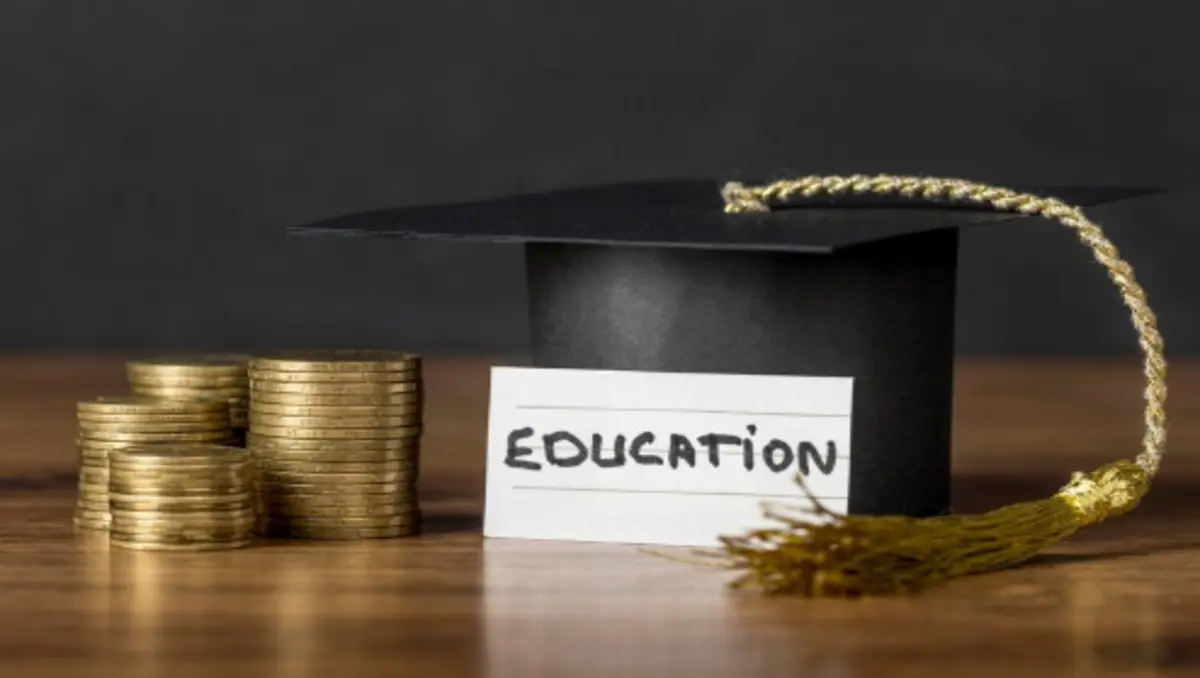In today’s world, money plays a central role in our daily lives. From buying groceries to planning for retirement, our financial choices affect nearly everything we do. However, despite its importance, many people don’t receive proper education on how to manage money. That’s where financial education comes in! In this blog post, we’ll dive into what financial education is, why it matters, and how you can start improving your financial knowledge today.
What is Financial Education?
Financial education refers to the process of learning about managing money and making informed decisions about financial matters. It includes understanding concepts such as budgeting, saving, investing, managing debt, and planning for the future. Financial education doesn’t require you to be an expert in economics, but rather it gives you the knowledge you need to make smart financial choices in your daily life.
At its core, financial education is about learning how to:
- Budget: How to manage your income and expenses effectively.
- Save: How to set aside money for future needs, emergencies, or big purchases.
- Invest: How to grow your wealth over time by investing in stocks, bonds, real estate, or other assets.
- Manage debt: How to handle credit cards, loans, and other forms of debt responsibly.
- Plan for retirement: How to save and invest for long-term financial security.
When you have a solid understanding of these concepts, you can make better decisions about how to use your money, reduce financial stress, and achieve your long-term goals.
Why is Financial Education Important?
You might wonder, “Why should I care about financial education? Doesn’t everyone just figure it out as they go?” The truth is that while many people learn about money through trial and error, a solid understanding of financial principles can make a huge difference in your life. Here’s why financial education is so important:
- Improves Your Money Management Skills
When you understand how to manage money, you can avoid common pitfalls like overspending, accumulating debt, or living paycheck to paycheck. Learning about budgeting, tracking expenses, and planning for future expenses helps you take control of your financial life.
- Reduces Financial Stress
Financial stress is one of the leading causes of anxiety for many people. Worrying about bills, debt, or not having enough savings for emergencies can take a toll on your mental health. But with financial education, you can create a plan for managing your money, which helps reduce uncertainty and stress.
- Helps You Achieve Your Goals
Whether your goal is buying a house, starting a business, or retiring comfortably, financial education gives you the tools to make those dreams a reality. By understanding how to save and invest, you can build wealth over time and work toward your long-term financial goals.
- Avoids Costly Mistakes
Without proper knowledge, it’s easy to make costly mistakes with money. For example, some people get caught in high-interest debt, make poor investment choices, or fail to plan for retirement. Financial education helps you avoid these mistakes and make smarter choices that will benefit you in the long run.
- Increases Financial Independence
Financial independence means having enough money to live comfortably without relying on others. By learning how to manage your finances, you can build wealth and eventually achieve financial freedom. This gives you the freedom to pursue your passions, take risks, and live the life you want.

Common Financial Mistakes and How to Avoid Them
Let’s take a look at some common financial mistakes people make and how financial education can help avoid them:
1:Not Having a Budget
One of the most common mistakes people make is not having a budget. Without a budget, it’s easy to lose track of how much you’re spending and end up in debt. A simple budget helps you track your income and expenses, so you know where your money is going and can make adjustments if needed.
How to avoid it: Start by listing your income and all of your monthly expenses. Categorize your expenses into essentials (like rent and utilities) and non-essentials (like dining out and entertainment). Use a budgeting tool or app to keep track of your spending and make sure you stay within your limits.
2:Living Beyond Your Means
Many people get into financial trouble by spending more money than they earn. This can lead to credit card debt, loans, and a cycle of financial stress. Living beyond your means is often the result of poor money management or impulse spending.
How to avoid it: Pay attention to your income and expenses and try to live within your means. If you find that your spending exceeds your income, look for ways to cut back on non-essential expenses, or find ways to increase your income through side jobs or passive income streams.
3:Ignoring Debt
Debt is a reality for many people, but ignoring it can make the situation worse. High-interest debt, such as credit card debt, can quickly spiral out of control if not managed properly.
How to avoid it: Make paying off high-interest debt a priority. Start by making more than the minimum payment each month to reduce the principal balance. Consider consolidating debt or transferring balances to lower-interest accounts to save on interest charges.
4:Not Saving for Emergencies
Life is unpredictable, and emergencies can happen at any time. Without an emergency fund, you may find yourself relying on credit cards or loans to cover unexpected expenses, which can lead to debt.
How to avoid it: Aim to set aside at least three to six months’ worth of living expenses in an emergency fund. Start small by saving a little each month and gradually build it up over time. Having this financial cushion will give you peace of mind and help you avoid going into debt during an emergency.
5:Not Planning for Retirement
Retirement may seem far off, but the earlier you start planning, the better off you’ll be. Many people don’t start saving for retirement until later in life, which makes it harder to accumulate enough money for a comfortable retirement.
How to avoid it: Take advantage of retirement savings plans like a 401(k), IRA, or pension plan as soon as possible. The sooner you start saving, the more time your money has to grow. Even if you can only save a small amount at first, it will add up over time and help ensure a secure retirement.
How to Get Started with Financial Education
Now that you understand the importance of financial education, let’s talk about how to get started. The good news is that learning about money doesn’t have to be overwhelming. There are plenty of resources available to help you become more financially educated, and it’s never too late to start.
Here are some steps you can take to get started with financial education:
1:Read Books and Articles
One of the best ways to learn about money is by reading books and articles written by financial experts. There are many great books on personal finance, investing, and money management. Some popular books include The Richest Man in Babylon by George S. Clason, Rich Dad Poor Dad by Robert Kiyosaki, and The Intelligent Investor by Benjamin Graham. Start with basic personal finance books, then gradually move on to more advanced topics like investing and retirement planning.
2:Take Online Courses
If you prefer a more structured approach, online courses can be a great option. Many websites offer free or low-cost courses on topics like budgeting, saving, and investing. Websites like Coursera, Udemy, and Khan Academy provide courses from reputable institutions and experts.
3:Use Budgeting Apps
There are many apps available that can help you manage your money. Some popular apps include Mint, YNAB (You Need A Budget), and PocketGuard. These apps allow you to track your income and expenses, set financial goals, and receive helpful tips to improve your financial habits.
4:Consult with a Financial Advisor
If you have more complex financial needs or goals, consider consulting with a financial advisor. A financial advisor can help you create a personalized financial plan, invest your money wisely, and make decisions about retirement planning and other long-term goals.
5:Stay Consistent
Financial education is a lifelong journey, and it’s important to stay consistent in your learning. Set aside time each week to read, take courses, or review your finances. The more you learn, the more confident you’ll become in making financial decisions.

Conclusion
Financial education is an essential skill that can help you take control of your money, reduce stress, and achieve your financial goals. By learning about budgeting, saving, investing, and managing debt, you can make smarter financial choices that will benefit you in the long run. Whether you start with books, courses, or budgeting apps, the important thing is to get started today. The earlier you start learning about money, the more empowered you’ll feel in shaping your financial future.
read more
https://financekhush.com/personal-finance-tips-a-guide-to-achieving/
Faq’s
1. What is Financial Education?
Financial education is learning how to manage money, make smart financial decisions, and plan for the future. It helps you understand how to budget, save, invest, and manage debt.
2. Why is Financial Education Important?
Financial education is important because it helps you make better money decisions, reduces financial stress, and helps you achieve your long-term goals, like buying a house or retiring comfortably.
3. How Can I Start Learning About Finances?
You can start by reading books and articles on personal finance, taking online courses, using budgeting apps, or speaking with a financial advisor to help you plan your finances better.
4. What Are the Basics of Budgeting?
Budgeting is about tracking your income and expenses to make sure you are not spending more than you earn. A basic budget involves listing all your expenses and setting aside money for savings and emergencies.
5. How Can I Save Money for Emergencies?
To save for emergencies, set up a separate savings account and try to save at least three to six months of living expenses. Start small if needed and build up over time.
6. How Do I Manage My Debt?
Start by paying off high-interest debt first, like credit card bills. Make sure to pay more than the minimum payment and consider consolidating debt if needed. Try not to take on new debt unless necessary.
7. What Are the Different Types of Investments?
Investments include stocks, bonds, mutual funds, real estate, and more. Each type of investment has its own risk and return. It’s important to research and choose what works best for your financial goals.
8. How Can I Start Investing?
Start by setting aside some money for investments. You can open an investment account with a brokerage firm and begin with safer options like index funds or ETFs. You can also consult a financial advisor if you’re unsure.
9. What is Retirement Planning?
Retirement planning is the process of saving and investing money so you can live comfortably in your retirement years. It involves setting long-term goals and contributing regularly to retirement accounts like a 401(k) or IRA.https://www.google.com/
10. What is the Difference Between Saving and Investing?
Saving is putting money aside for short-term needs, like an emergency fund, while investing is using money to buy assets that can grow over time, like stocks or real estate, for long-term financial growth.
